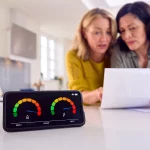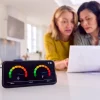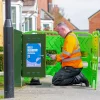Poverty Alliance Warns UK Social Broadband ISP Tariffs Suffer Critical Flaws

The Digital Poverty Alliance (DPA) has published a new briefing that warns how Social Tariffs from UK broadband and mobile providers, which offer significant cost savings to those on state benefits (e.g. Pension Credit, Universal Credit etc.), continue to suffer from three “critical flaws” – minimal awareness, inconsistent quality and affordability.
According to Ofcom’s most recent December 2024 report (here), the take-up of cheaper Social Tariffs (telecoms) for those on state benefits jumped to 506,000 customers in June 2024 (up from 380,000 in Sept 2023). But that’s still just 9.6% of eligible households – the number of households claiming Universal Credit also increased to 5.3 million during this period (up from 4.6m at the last report).
In the past, very few people even knew Social Tariffs existed, which tended to only be offered by a couple of providers, such as BT and KCOM. But the last government, partly in response to the cost-of-living crisis, worked closely with Ofcom to change that and thus fostered a huge rise in both the availability, promotion, capabilities and awareness of such packages.
Advertisement
However, Ofcom’s data from January 2025 indicated that 5.3 million households – around 23% – were still struggling to pay for their communications services and take-up of Social Tariffs remains low (although we don’t yet know how much this has changed through 2025). The DPA’s new briefing thus identifies three “critical flaws” in such tariffs. Firstly, awareness is still said to be “minimal“, with tariffs “poorly promoted and often accessible only through online applications that lock out those already excluded“.
Secondly, quality is said to be inconsistent. For example, while some providers offer unlimited broadband, others “impose strict limits or cap speeds” at around 30Mbps – “far below what families need for work, education, or healthcare“. But we think that statement is a little unfair, since social tariffs are only supposed to be a basic entry-level option and 30Mbps is usually enough for most tasks, albeit clearly not a premium experience.
Finally, affordability is also said to still be an “obstacle” because, even at a reduced rate, tariffs can still be “out of reach for households already unable to cover essential bills“. The difficultly here is that commercial ISPs are not charities and it’s already hard enough for anybody to make a profit in today’s competitive market. But it’s similarly unrealistic to expect broadband ISPs to sell products at below cost price.
Elizabeth Anderson, CEO of the Digital Poverty Alliance, said:
“Affordable, reliable broadband must be treated as a basic utility, not a luxury. Social tariffs can reduce digital poverty, but only if they are promoted properly, standardised across providers, and accessible to every household that needs them.”
The idea of “standardising” social tariffs would be extremely difficult for a market with so many different underlying broadband networks and technologies – where coverage and performance aren’t always the same from one location to another (telecoms is more complex than gas, water or electricity). For example, you can’t very well offer 30Mbps, 50Mbps or 100Mbps in an area where only slower speeds are technically possible (e.g. ADSL-only areas or those on longer FTTC lines).
Advertisement
Equally, many providers are currently operating under significant financial strain due to the rising cost of network builds, energy and high interest rates etc. Suffice to say that what’s viable for one is not going to be viable for another, which is why a one-size-fits-all approach isn’t currently workable.
However, the DPA does recognise that social tariffs are “not a cure-all“, but it also warns that without reform they will continue to fall short. “Connectivity must be recognised as a public good – central to full participation in society,” said the DPA. In order to deliver on this they make several familiar recommendations, such as removing VAT from social tariffs (this often comes up, but no government has ever done it) and various other things.
DPA Recommendations for Social Tariffs
• Central government should remove VAT from social tariffs, lowering costs further and reinforcing the principle that digital connectivity is a basic utility.
• Government and industry should collaborate to establish a co-funded, standardised, industry-wide social tariff, ensuring that offers are consistent, reliable, and accessible regardless of provider or geography.
• Awareness campaigns should be delivered across mixed media, combining trusted national organisations with local channels. Messaging must be simple, transparent, and free of jargon, with offline options for application to ensure that those already excluded are not left behind.
• All government correspondence with benefit recipients – including letters about Universal Credit or welfare entitlements – should include clear information on social tariffs and how to access them.
• Providers should guarantee sufficient speeds and reliability on social tariffs, ensuring they meet the needs of households relying on digital access for education, healthcare, and employment. Substandard or restricted services risk reinforcing exclusion rather than addressing it.
Finally, a quick reminder. We know social tariffs can be a divisive topic for some, but that is not an excuse to abuse the comment system in order to post offensive remarks toward those who take state benefits. Such posts are against our rules and will be removed.
Mark is a professional technology writer, IT consultant and computer engineer from Dorset (England), he also founded ISPreview in 1999 and enjoys analysing the latest telecoms and broadband developments. Find me on X (Twitter), Mastodon, Facebook, BlueSky, Threads.net and Linkedin.
« INCA Warns Altnets Need Certainty and Delivery from UK’s Digital Sector Plan























































With BT/EE, any eligible customer can switch to the social tariff with no penalty if they are in contract already. However, we’re not allowed to proactively offer them – the customer must claim hardship first.
Which seems fair given they are being subsidised by other full paying customers
To me it is “interesting” that the needs are stated as “education, healthcare, and employment”, whereas the vast majority of the usage will almost certainly be entertainment (video streaming and gaming).
This is what it is. there is a social aspect to broadband now, online shopping (really important for elderly and disabled as an example), research, applying for jobs, that sort of thing.
But yes inevitably it will get used for things like streaming as well, however streaming and other similar types of usage also have a social aspect that they are typically a very cost efficient way of providing a way to pass the time and helps reduce things like anti social behaviour and other crimes by keeping people occupied. I have no issue with social tariffs.
Also is similar on energy tariffs as an example special tariffs for charging EV’s etc. But the cheap off peak is for ‘all’ energy use on that tariff, not just for the EV. So you get people charging batteries through the night to power their house in the day, that sort of thing. If we are to believe the normal energy tariff’s are barely profitable then its clear the EV ones are subsidised as well.
“If we are to believe the normal energy tariff’s are barely profitable then its clear the EV ones are subsidised as well.”
On the contrary, EV tariffs are likely more profitable than standard tariffs. The EV tariffs have about a 10% premium for energy outside the discount period. It’s also _way_ cheaper for retailers to buy electricity for use off peak. There is a big cost benefit to both retailer and consumer of shifting energy consumption from day time to over night where there is a big oversupply of energy. The standard tariffs lose money during peak hours and make it up off-peak. You can look at a tariff like Octopus Agile which has a different price every 30 minutes based on wholesale energy markets. You can save a fortune if you’re willing to shift your energy usage outside peak demand windows.
Why do you believe normal tariffs are barely profitable? The energy cap is calculated to enable the suppliers to make a fixed profit.
Also EV charging on a low cost tariff generally happens under control of an app that will choose the cheapest time to charge.
There were low cost overnight tariffs such as Economy 7, long before EVs.
Electricity is much cheaper at night because supply exceeds demand during those hours.
VAT on fixed line broadband should be reduced to the same 5% that is charged on gas & electricity anyway seeing as it is now almost as essential a service. Perhaps a central hub acessable via the DWP for accessing social tariffs would also be a good idea. One altnet (I can’t remember who) was offering their social tariff to everyone no matter what your means.
I think the altnet you’re thinking of is Community Fibre. 35 Mbps for £12.50/month 🙂
VAT should be 5% on everything
It’s really dumb that they even removed vat free shopping. People will just go elsewhere/stop coming altogether since a train to Paris is just 2 hours. VAT is a punishing deterrent for participating in the economy
Sky/NOW only offer their social tariff to existing customers. Silly. Typical Sky trying to get more money out of customers – they probably hope that you forget (or just don’t bother) to move over to the social tariff (if eligible) once you’re with them, paying full price when you can get it cheaper.
I’m sure they make it deliberately difficult to sign up. On Vodafone you have to fill in a form and await a callback. Which either never came or came while unable to answer, and they don’t try again. I think I filled it in 6 times over 2 months before managing to sign up. (Once migrated it’s been working ok)
Yeah, Vodafone don’t handle those applications in the best way. I applied at least 3 times when I was with them, they finally got back to me about 10 days later (although in fairness, they did call a few times and even left a voicemail when I couldn’t answer). I chased them up after the second request (their phone number wasn’t private/no caller ID for me) and the advisor couldn’t find my application even though I provided all the correct details.
I’m now with BT. They actually sorted out my social tariff application on a live chat (although the website says you have to call) when I was talking to them about a different issue. They connected me to the relevant team and it was all sorted within 10 minutes – hassle free. A bit more expensive than Vodafone, but I’m happy with the service.